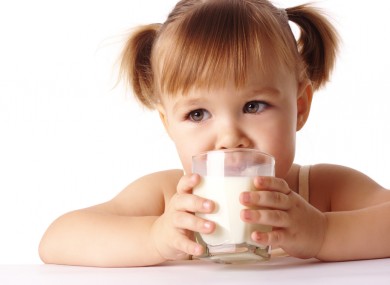This article contains affiliate links. If you make a purchase after clicking on a link I may earn a small commission at no extra cost to you.
Dairy allergy symptoms.
Amongst the different kinds of food allergies that exist, dairy allergy is a fairly common one. Typically, individuals who have dairy allergy develop a reaction following the consumption of milk and milk products. In this article, we shall take a look at dairy allergy in a little more detail.
What is a dairy allergy?
Dairy allergy refers to an allergic reaction that occurs within the body following the consumption of dairy products. In essence, this can include consumption of milk, cheese, cream and any other products that are made with dairy.
Allergy to dairy occurs because of an aggressive immune response that is triggered within the body following the consumption of milk and milk-based products. Primarily, milk protein that is present in cow’s milk is what is responsible for dairy allergy.
What causes an Allergy to Dairy?
The clinical features that are seen with the dairy allergy occur because an immune response takes place within the body. This immune response is triggered by proteins within dairy such as whey and casein. This protein is not just present in milk but also in every kind of dairy product including cream and cheese.
Clinical symptoms
Typically, patients who have a dairy allergy start to notice symptoms within minutes of consumption of dairy. Of course, symptoms can sometimes occur a little later on and can range up to a few hours before the patient is aware that they are having an allergic reaction.
Broadly classified, dairy allergy symptoms can range from mild to severe. Mild symptoms can include just a rash, mild wheezing and the development of loose motion and excessive flatulence associated with abdominal bloating.
However, the other end of the spectrum of symptoms can be rather serious. Dairy allergy can present as an anaphylactic reaction, which is a serious immune response that causes significant breathing difficulty along with a drop in blood pressure. Anaphylactic reactions can be life threatening.
Risk factors in the development of dairy allergy
Patients who develop dairy allergy are often ones who have other allergic symptoms. In addition, they may have a background history of atopic dermatitis which is a form of allergic skin rash. There may be a family history of dairy allergy which has being passed down through generations.
Diagnosis of Lactose Intolerance
The diagnosis of dairy allergy is primarily made through clinical history and the symptoms that the patient experiences. No additional tests are needed though in some cases a skin test may be performed to ascertain the presence of any other allergic triggers.
Treatment of Allergy Symptoms
A Dairy allergy is best treated through prevention. This means that individuals should completely avoid consumption of milk and milk-based products. In the event that an anaphylactic reaction occurs to dairy, patients will need hospitalisation and management with emergency medication such as adrenaline and steroids.
Personal story.
It was only in my 50s that it became apparent that I was intolerant to dairy.
Occasionally I would feel slightly unwell after consuming a milky drink but at that stage I had not connected the dots. It was only after numerous times of consuming a breakfast cereal that I felt slightly unwell and exceptionally lethargic. At that stage I was always having my coffee with milk and I became aware that if I drank milk coffee on an empty stomach once again I would feel unwell.
What were the Dairy allergy symptoms I experienced?
The main feeling was a a state of lethargy. I just felt like I just needed to sleep. Occasionally it was nausea
It really was a slow realization that it was necessary for me to stop the consumption of milk. I did try Lactose free milk and there was an improvement to my state of being compared to milk with lactose. I now drink my tea black and usually green tea and still enjoy my coffee but with soy milk.
Other members in my family are also sensitive to lactose so there are no more milkshakes consumed in our family. Our young boys do not enjoy the taste of soy so they have learnt to do without.

